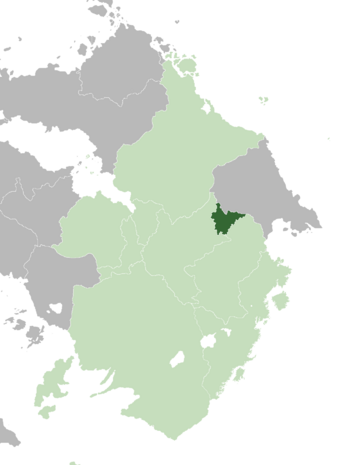Lutsana
This article is considered abandoned lore either because its creator has changed projects or has left the community. Accordingly, it is not only non-canon but it is also eligible for salvage pending approval from an administrator.
|
Lutsana, officially the Republic of Lutsana, is a country in Levantia. It is the smallest member of the Levantine Union. Lutsana has existed on the edge of the Derian world and Dericania for all of its existence, forming a major part of the eastern border with Orenstia. Its status as a borderland - one partly settled on the land of Orenstine peoples during the period of Great Levantia - has lead to the creation of a unique culture embracing both Latinic and Orenstine heritages. In 2026, Lutsana was the second state - following Hollona and Diorisia - to leave the Deric States.
Republic of Lutsana | |
|---|---|
|
Flag | |
Motto: Amat victoria curam ("Victory Favors Care") | |
 Location of Lutsana (green) in the Levantine Union (light green) and Levantia (gray) | |
| Capital and largest city | Ericaner |
| Official languages | Latin |
| Religion | Catholicism |
| Demonym(s) | Lutsan (noun) Lutsani (adjective) |
| Government | Unitary Presidential republic |
• National Popular Regent | Gaius Koskinen |
• National Speaker | Julia Nieminen |
| Legislature | National Popular Senate |
| Establishment | |
• Republic proclaimed | 1 June 1918 |
• Modern constitution | 24 August 1942 |
| Population | |
• Estimate | 8,991,223 |
| GDP (nominal) | estimate |
• Total | $458,272,382,869 |
• Per capita | $50,968 |
| Currency | Taler (₮) |
Lutsana is a member of the Levantine Union.
Etymology
Geography
History
Pre-Latinic conquest
Great Levantine incorporation
Borderland and medieval period
Holy Levantine Empire and Golden Age of Lutsana
Modern period
Government
Executive
Legislature
Local governance
Culture
Lutsine people descend from Latinic and Gaelic influences with a predominantly Orenstine heritage, creating a unique people at the crossroads of north central Levantia.